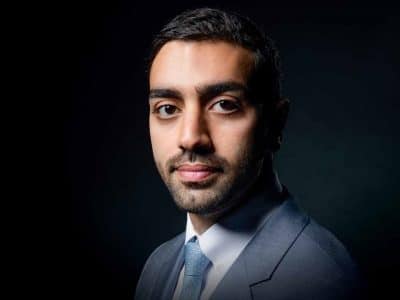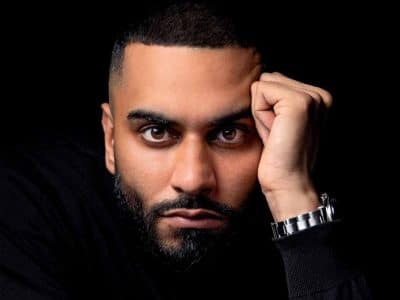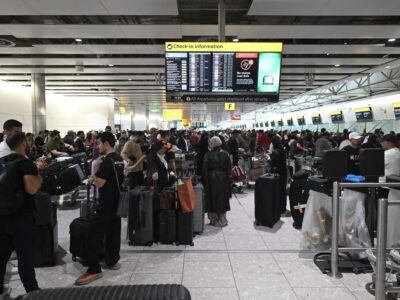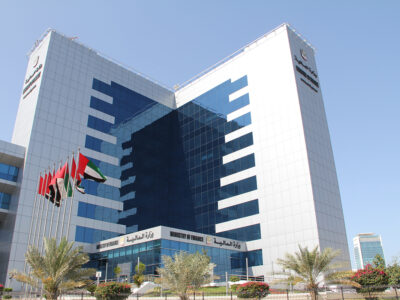It is no longer true that you have to have enjoyed a long and successful career in order to give back and start supporting young, undiscovered creative minds around the world.
In 2013, Alisée de Tonnac – despite being relatively early in her career – founded Seedstars World, a seed-stage start-up competition for emerging markets, teaming up with Pierre-Alain Masson to look for talents in up and coming parts of the world.
“Most people from emerging markets don’t go abroad, they don’t travel that much, so they build their companies inside their countries,” said Igor Ovcharanko, regional manager for CEE and MENA at Seedstars World, in between two pitching sessions at the regional finals held at Dubai-based co-working space, The Cribb.
“We think that the next big thing is going to come out from an emerging market.”
For the last three years, the Geneva-based organisation, which is supported by the venture builder Seedstars and partners with MEST, Google for Entrepreneurs, and Microsoft, has supported start-up founders from emerging markets. To date they have raised $20 million together and have provided employment to more than 360 people all around the world.
To be eligible for the competition, a venture needs to be at seed-stage, less than two years old, having a minimum viable product (MVP) available, and aiming to raise less than $500,000.
The figures show how eager local start-up pioneers are for the international attention. In 2015 only, Seedstars World has screened 2,500 start-up applications and has had more than 800 entrepreneurs pitch at their local events.
“In Dubai, you have a diverse and advanced start-up ecosystem and people are used to events like this,” Ovcharenko explained.
“But when you go to countries like Iran, Azerbaijan or Georgia …Those countries don’t have so many international competitions coming and that’s why we are very welcome there and we are really developing their ecosystem.
“One interesting story is of our winner in Iran. He is 22 and he competed [at the regional finals in Teheran, Iran] with his 33rd start-up. He started his first venture when he was 16. He builds small devices for measuring things like temperature, humidity and other things for plant greenhouses.
“He is so modest and so smart. He is doing all that by himself in his small office in Teheran.”
The competition, renamed the STARS Track in 2015, consists of numerous semi-finals, which have increased in number from 36 in 2014 to 55 this year, taking place in different cities around the world. A grand final takes place in February when all regional winners travel to Switzerland for the chance to win a $500,000 equity prize.
The week-long all-inclusive stay in Luasanne will include a two-day bootcamp, a two-day conference, and a day for meetings with investors.
This year’s novelty is also the introduction of two more competition tracks – a prize worth $500,000 in equity will be awarded to two best start-ups in the travel and fintech industries.
Partnering with Innovation 360, In5 and The Cribb, the competition has already awarded TourBud, a web service for travellers, in 2013, and KinTrans, a start-up that came up with a system to translate sign language into voice and text in real time, in 2014.
The members of this year’s jury panel brought in diverse expertise and experience – Kamal Hassan of Innovation 360, Ambareen Musa of Souqalmal, John Chehaibar of Seedstars World, Patrick Thiriet of Choueiri Group, Ned Jaroudi of Young Arab Leaders.
The judges unanimously selected AlemHealth – a Dubai-based healthcare start-up founded by Aschkan Abdul-Malek and Sajjad Kamal – as the 2015 regional winner.
Different from other regional winners who mostly come from underdeveloped markets, Abdul-Malek and Kamal chose to focus their Dubai-based business on impoverished and war-torn parts of the world.
“We are thinking ‘ok, we come from privileged background and we’ve been able to build cool technology, but what about the guys that haven’t had that’,” Kamal said to StartUp after the event.
To access resource limited or rural areas in semi-developed countries, the co-founders created a low-cost, low bandwidth approach to diagnostic telemedicine. In this way, AlemHealth is a digital marketplace that connects hospitals in developing countries to a global network of medical professionals and services.
The panelists’ questions mainly related to how their technology works. “To be honest, a lot of people ask about the fact that at the countries we are operating in, they don’t even have access to basic technology. We are actually providing our service over telephone networks,” Kamal said.
The provision remote healthcare through the use of technology is expected to grow in 2015 and the years ahead.
A recent research by Venture Beat, shows that the global medicine market is expected to be worth $27 billion in 2016, and that 65 percent of interactions with healthcare organisations will be done via mobile devices by 2018, while 70 percent of organisations will have apps.
Kamal added: “Five years ago, a service like ours wouldn’t have been possible, but because of the new generation of technology the next billion of people will be connected to the internet at a really fast pace.
“So when they get connected to the internet a lot of new opportunities will arrive.”
Back at the competition, BoxIt, a Kuwait-based start-up that offers digital storage system, and Unnyhog, a MMO (massively multiplayer online) games mobile developer, secured second and third place respectively.
For information, tips and advice on setting up a new business or insights from those who have taken the leap into the world of entrepreneurship, click on the Arabian Business StartUp section.









